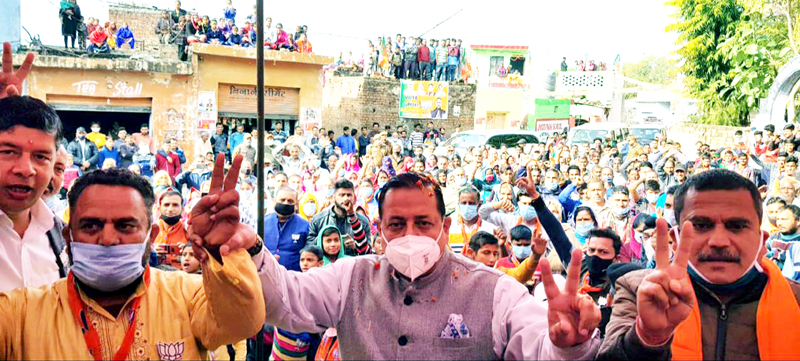
Excelsior Correspondent
SAMBA, Dec 12: Union Minister Dr. Jitendra Singh said today that Article 370 paved the way for rampant corruption in Jammu & Kashmir because it gave the successive governments in the State the right to form their own anti-graft laws which were inadequate and tailor-made for convenience. At the same time, Article 370 also gave the State rulers the prerogative not to allow the Govt of India’s “Prevention of Corruption Act” to be implemented in Jammu & Kashmir in the same way as it had been implemented in the rest of the country, he said.
Dr Jitendra Singh, who is also Minister In-Charge Department of Personnel & Training (DoPT) at the Centre, was addressing a public meeting here as a part of the District Development Council election campaign in Panchayats. He said, the Prevention of Corruption Act 1988 amended in 2018 through a legislation brought in the Parliament by DoPT, got implemented in Jammu & Kashmir only after the abrogation of Article 370 and the State having turned into a Union Territory.
There was no effective curb on corruption in the past, said Dr. Singh, because the then State of Jammu & Kashmir had its own Anti-Corruption Act, wherein the cases against corruption carried on indefinitely for years together and by that time either the concerned officials would get superannuated or it would be too late to bring them to book. As a result, corruption in Jammu & Kashmir, both in lower as well as in higher offices, became a norm rather than an exception and the common impression was that anybody who was smart enough to get away with it, could also manage to go scot-free, he said.
“With the implementation of the Prevention of Corruption Act of Government of India, there are time-lines fixed to dispose of corruption cases and at the same time, not only the bribe-taker but also the bribe-giver will be held guilty. This will not only help to effectively curb corruption and bribery, but also have a deterrent effect on frivolous or false complaints against an honest officer with the motive to harass him or blackmail him”, he said.
Dr Singh said that the setting up of District Development Councils will bring about further accountability, transparency and outcome-oriented approach in the working of the Government. When the District Councillors and District Council Chairman work in coordination with the Deputy Commissioner and his administration, they will not only supplement each other’s efforts and initiatives, but also exercise the necessary checks and balances, he said.

